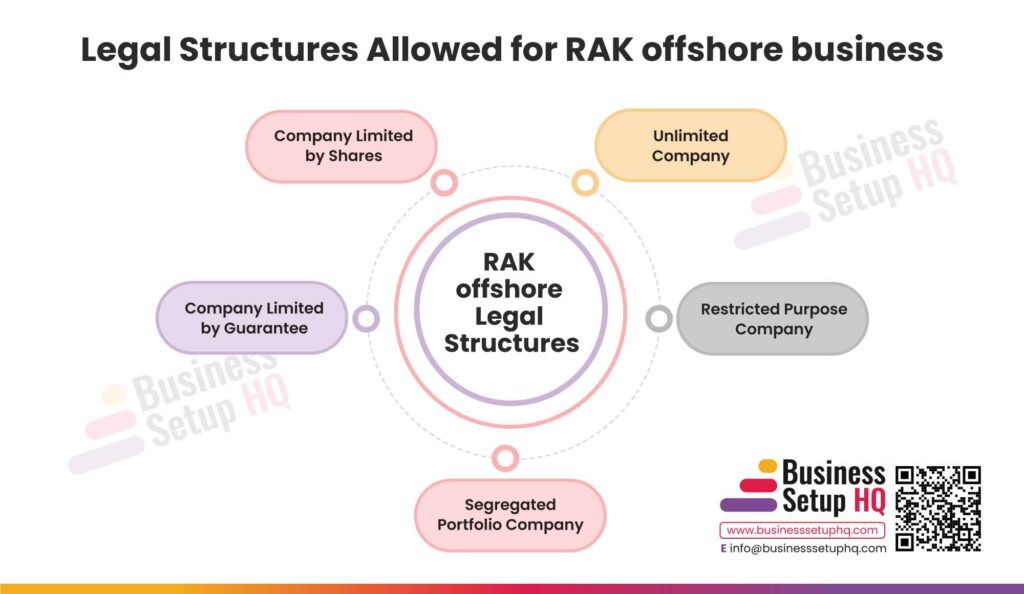Offshore Company Formation Services Supported by Years of Experience
Offshore Company Formation Services Supported by Years of Experience
Blog Article
Navigating the Globe of International Business: Insights on Offshore Company Formation
Offshore Company Formation offers a strategic avenue for global company operations. It provides remarkable advantages, such as tax optimization and improved personal privacy. The process is not without its challenges. Comprehending the complexities of regulative demands and different jurisdictions is important. As services think about these choices, the steps included can greatly impact their long-term success. What are the vital factors that can lead to efficient overseas administration?
Comprehending Offshore Companies: Interpretation and Objective
Offshore companies have actually come to be a centerpiece in global company discussions due to their one-of-a-kind legal and financial structures. These entities are established in jurisdictions outside of the owner's country of residence, usually with favorable regulative environments. Usually, offshore firms offer different functions, such as asset defense, tax optimization, and improved personal privacy. They can operate in several fields including profession, financing, and technology, providing adaptability for worldwide operations.The defining attribute of an overseas Company is its ability to carry out organization worldwide while profiting from reduced tax liabilities and regulatory concerns. This structure interest investors and business owners seeking to diversify their profiles and handle threats effectively. In addition, several overseas jurisdictions use motivations to bring in foreign investment, resulting in a boost in the Formation of these firms. Recognizing the definition and purpose of overseas firms is crucial for navigating through the intricacies of worldwide business and resources flow.
Secret Advantages of Offshore Company Formation
The Formation of an overseas Company provides several compelling advantages that attract investors and entrepreneurs alike. Among the key benefits is tax optimization; lots of territories provide positive tax obligation rates or exceptions, allowing businesses to make the most of earnings. In addition, offshore companies often enjoy greater discretion, as lots of territories have rigid personal privacy legislations securing the identifications of Company proprietors and shareholders.Another considerable benefit is property defense. Offshore entities can secure possessions from political instability and financial declines in the owner's home country. Furthermore, these companies can promote global trade, offering very easy accessibility to global markets and streamlining cross-border transactions.The adaptability in corporate framework also appeals to business owners, as offshore companies can be tailored to fulfill particular functional needs. In general, the tactical Formation of an offshore Company can cause boosted monetary safety and security, functional efficiency, and a robust global presence.

Usual Challenges in Establishing Offshore Entities
Developing offshore entities offers numerous challenges that organizations should browse. Trick problems consist of regulatory conformity, which can vary significantly throughout territories, and the impact of social differences on operations. Additionally, organizations need to take into consideration the costs and dangers related to keeping an overseas existence, which can affect general viability.
Regulative Compliance Issues
When they look for to develop offshore entities, maneuvering governing conformity issues postures considerable obstacles for services. Each jurisdiction has its own set of guidelines and regulations, which can differ widely and might be hard to navigate. Companies usually deal with difficulties pertaining to tax obligation compliance, anti-money laundering policies, and reporting demands. Additionally, changes in international tax obligation regulations can produce uncertainty, making it crucial for organizations to remain upgraded on conformity commitments. Failing to comply with these laws can cause severe charges, consisting of penalties and reputational damage. Consequently, recognizing the legal framework and engaging with regional specialists is necessary for effective offshore operations, guaranteeing that businesses can run within the boundaries of the legislation while optimizing their international technique.
Social Differences Influence

Price Factors To Consider and Dangers
Guiding via the monetary landscape of offshore entity Formation presents numerous expense factors to consider and integral risks. Preliminary arrangement expenses often consist of legal costs, registration expenditures, and conformity fees, which can build up considerably. Additionally, ongoing maintenance expenses such as annual charges and bookkeeping services have to be factored in. Additionally, fluctuating regulative atmospheres in different territories position dangers, possibly leading to unforeseen prices or lawful issues. Businesses might additionally encounter difficulties connected to taxation, banking, and reputational concerns, which can affect profitability and functional effectiveness. Subsequently, potential business owners need to perform thorough due persistance and financial projecting to alleviate these risks and assure sustainable growth. Understanding these expense factors to consider is vital for successful overseas company ventures.
Steps to Establish Up an Offshore Company
Establishing an offshore Company involves a number of crucial steps that require careful consideration. Key aspects include picking the proper jurisdiction and making sure conformity with neighborhood regulations, along with gathering necessary documentation. Comprehending these components is necessary for an effective overseas organization configuration.
Picking the Right Territory
Selecting the best territory is essential for anyone looking to establish an offshore Company, as it can greatly affect the service's legal responsibilities, tax responsibilities, and functional ease. Various variables must be considered, including the political security, regulatory atmosphere, and tax rewards used by prospective jurisdictions. Popular options frequently consist of countries with desirable tax regimes, such as the British Virgin Islands or Cayman Islands, because of their reduced or no tax obligation prices. In addition, the simplicity of doing company and the online reputation of the jurisdiction can influence capitalist self-confidence and market gain access to. Ultimately, a knowledgeable decision based upon thorough research study will certainly assure the offshore Company is placed for long-lasting success and compliance with international criteria.
Needed Documents and Compliance
When setting up an offshore Company, understanding the required documents and conformity needs is necessary to assure a smooth process. Trick records typically include a certificate of incorporation, a memorandum and short articles of association, and evidence of identification for directors and shareholders. Some territories may need extra information, such as company plans or financial institution referrals. Conformity with neighborhood laws is essential, which typically entails appointing a registered agent and keeping an authorized office. Normal reporting and adherence to tax obligations have to additionally be considered. Failure to comply with these requirements can result in fines or even dissolution of the Company. Comprehensive prep work and examination with legal experts can help navigate these intricacies properly.
Choosing the Right Jurisdiction for Your Offshore Company
Exactly how can one figure out one of the most suitable territory for an overseas Company? Selecting the right territory needs mindful consideration of multiple factors. The lawful and tax environment plays an important function; jurisdictions with beneficial tax obligation regimens might enhance organization productivity. Furthermore, the political security and economic climate of a location can influence long-term organization viability.Another crucial facet is the accessibility of financial services and financial framework, which promote smooth procedures. Potential service proprietors need to likewise think about the simplicity of doing company, consisting of the speed of registration and the quality of regulations.Furthermore, language barriers and cultural distinctions can affect procedures; for that reason, straightening with a jurisdiction that aligns with company objectives and individual convenience is essential. Eventually, extensive study and professional recommendations can guide business owners in making a notified choice that straightens with their calculated purposes.
Compliance and Regulative Factors To Consider

Finest Practices for Handling an Offshore Organization
Handling an offshore service needs critical planning and meticulous implementation to enhance efficiency and minimize dangers. Developing a durable compliance structure is important to navigate differing laws across territories. Regular audits and risk analyses help determine potential vulnerabilities.Moreover, leveraging neighborhood competence through partnerships with neighborhood experts can enhance operational performance and cultural understanding. Utilizing modern technology, such as cloud-based monitoring systems, simplifies communication and data monitoring, allowing better decision-making. Furthermore, preserving transparent financial records and guaranteeing timely tax filings are crucial to maintain the Company's honesty. Buying team training and development offshore company formation fosters an experienced workforce, promoting development and adaptability.Finally, developing clear performance metrics and crucial efficiency signs (KPIs) helps analyze service progression and educate strategic changes. By adhering to these best practices, companies can efficiently manage their offshore procedures, making certain lasting success and sustainability in an affordable international marketplace.
Regularly Asked Concerns
What Is the Cost of Forming an Offshore Company?
The cost of developing an offshore Company differs extensively depending on territory, legal needs, and solutions required. Normally, expenses can vary from a few hundred to a number of thousand bucks, including registration, conformity, and annual fees.
The length of time Does It Take to Develop an Offshore Entity?
The moment required to establish an offshore entity differs substantially, typically ranging from a couple of days to several weeks (offshore company formation). Aspects influencing this period consist of territory, required documentation, and the effectiveness of the company entailed
Can People Type Offshore Companies Without a Service Partner?
Individuals can undoubtedly create overseas firms without a company companion. Numerous jurisdictions allow single-member entities, empowering entrepreneurs to develop and handle their organizations separately, while still benefiting from prospective tax obligation advantages and legal securities.
Exist Any Tax Advantages for Foreign Investors?

What Type of Companies Commonly Make Use Of Offshore Business?
Offshore firms are regularly used by different sectors, consisting of finance, shopping, and innovation. These entities commonly offer objectives such as asset protection, tax optimization, and privacy, attracting both multinational corporations and specific business owners. Offshore business have come to be a focal factor in international organization conversations due to their distinct legal and economic frameworks. They can run in several sectors consisting of profession, financing, and modern technology, giving flexibility for international operations.The defining quality of an overseas Company is its capability to perform organization worldwide while profiting from lowered tax responsibilities and governing worries. Furthermore, offshore firms frequently take pleasure in better privacy, as lots of territories have rigorous privacy regulations safeguarding the identities of Company owners and shareholders.Another significant advantage is asset security. These business can facilitate global trade, supplying simple access to global markets and streamlining cross-border transactions.The flexibility in business structure also allures to service proprietors, as offshore firms can be customized to fulfill certain operational needs. Choosing the appropriate jurisdiction is vital for anybody looking to establish up an overseas Company, as it can greatly impact the organization's legal commitments, tax responsibilities, and functional ease.
Report this page